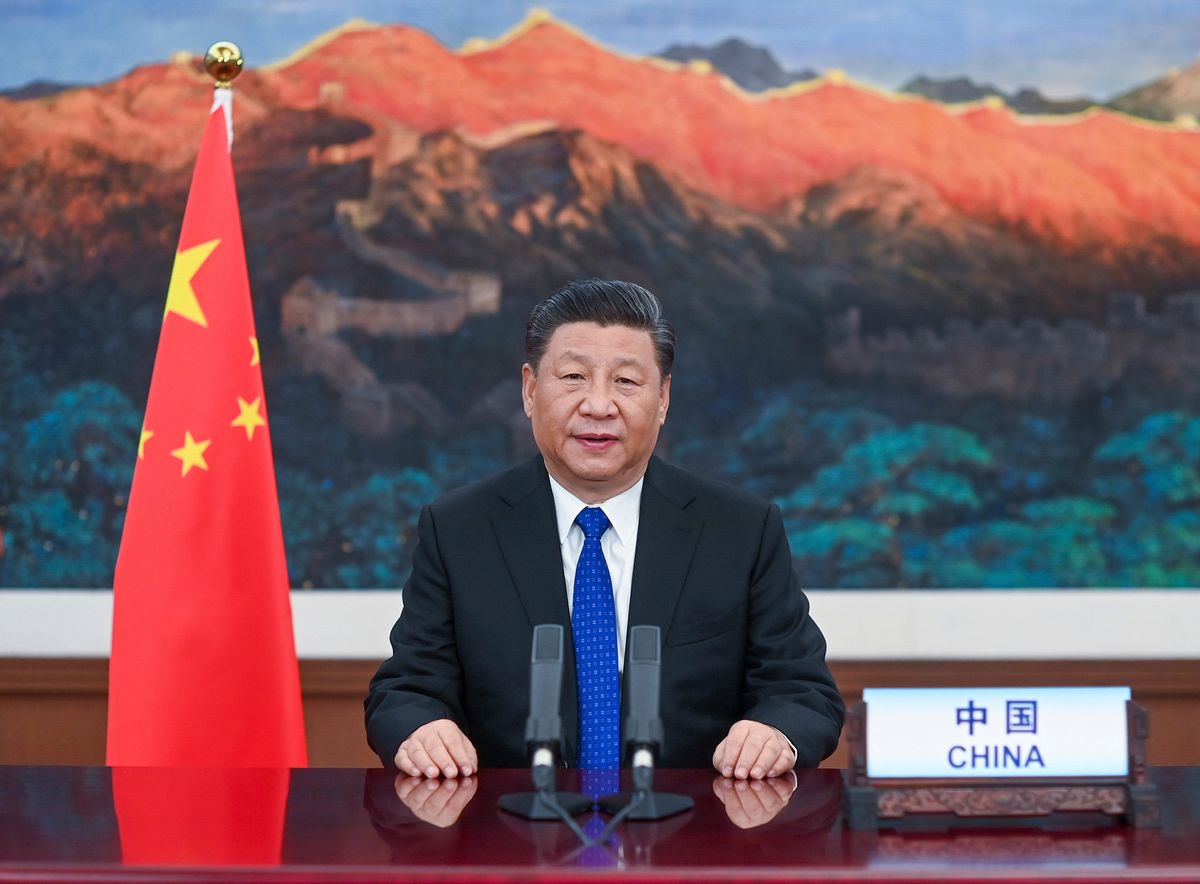Tensions between the US and China are likely to worsen, says top economist

A few minutes every morning is all you need.
Stay up to date on the world's Headlines and Human Stories. It's fun, it's factual, it's fluff-free.
“There will continue to be a very rough ride between the US and China over the next six months. In fact, their relationship will get worse,” says Chris Leung, the Executive Director and Chief China Economist of DBS Bank.
In a private event on June 17, Leung discussed the economic relationship between the United States and China post-COVID-19. He believes that China has used three prime strategies to enhance its global strength and that this has contributed to a feeling of tension in the US.
Firstly, China has gained a technological edge with its gains in 5G technology.
Huawei currently operates in more than 170 countries and more than 3 billion of the world’s population uses Huawei’s products and services to make calls, send text messages, or surf the internet.
“The US is trying very hard to persuade the Western countries, especially, not to use Huawei technology in the 5G domain,” Chris Leung says.
“Secondly,” Leung continues, “China is also transforming its economic might into geopolitical influence, primarily via the Belt and Road Initiative (BRI). Finally, China is attempting to influence or rewrite the way supranational institutions work. One example is China’s attempt to sway the opinions of significant global citizens with its work within the United Nations.”
Leung predicts that there will be a reaction from the US as tensions rise. He also believes that the US is aware of what China is doing, as this is a strategy similar to that the US used while it was itself developing into a superpower.
“To counter China’s efforts, the United States will try to win friends and contain China,” Leung says.
Ironically, back in 2000, the US supported China’s entrance into the World Trade Organization, with President Bill Clinton expressing his hope that this move would result in “The right kind of change” for China.
In contrast, the US has just recently suspended H1B, H2B, H4, L1, L2 and J1 visas. This essentially bans most foreign workers and students from entering the US through December 31, 2020.
“The US is trying to restrict the mobility of labor,” Leung notes, “Especially high-end labor. A lot of the university partnerships between the two countries have been terminated or postponed and it is very difficult for Chinese students to get student visas if they want to go to the US to study computer science or engineering.”
Something that appears to have escalated tensions between the two countries is President Trump’s allegation that the coronavirus was allowed to spread in China after its initial emergence with little effort on the part of the Chinese to contain it.
Furthermore, a domino effect of negativity could result if sanctions are enacted based upon the Hong Kong Human Rights and Democracy Act, which was signed into law on November 27, 2019.
The Chinese government has called the new law an intrusion on Chinese sovereignty, with the country’s Ministry of Foreign Affairs saying that China “firmly opposes” the law and that its passage shows that the US has “sinister intentions.”
The Ministry further advised the US “not to act arbitrarily, otherwise we will resolutely counteract.”
Last week, the US also introduced sanctions against Chinese officials responsible for the oppression of Muslim Uyghurs in Xinjiang Province.
“If the Hong Kong Act went away tomorrow,” Leung says, “it would not sink Hong Kong. It would simply create more uncertainty.”
“As to the possibility of tension between the two superpowers over the recent Hong Kong Security Law, Hong Kong has become the center of cross-fire between the two nations, especially after the enactment of the Hong Kong Security Law two or three weeks ago,” Leung points out.
“Why would China do this (enact the security law), when Hong Kong is very important to China? The reason is that I think that China does not want the US to use Hong Kong to threaten China anymore and that’s why China is doing this. I do not think that China is enacting the Hong Kong security Law to undermine Hong Kong. The assault on China (by the US) is systematic, holistic, encompassing capital market restrictions and labor restrictions.”
Certainly the decision to enact the National Security Law for Hong Kong in August would exacerbate already strained relations between the US and China. It would, however, be extremely difficult to decouple the interests of the US from China in an immediate way.
Meanwhile, the US is in the midst developing a new trading group, called the Economic Prosperity Network.
According to Foreign Policy Magazine, “The aim is in part to convince U.S. firms to extricate themselves from China and instead partner with members of the so-called network to reduce U.S. economic dependence on Beijing—seen as a key national security vulnerability. If a U.S. manufacturing company can’t move jobs from China back to the United States, for example, it could at least move those jobs to another more U.S.-friendly country, such as Vietnam or India.”
“As long as the issue of the National Security Law is unsettled,” Leung concludes, “there will be no Phase 2 in US/China trade talks.”
Have a tip or story? Get in touch with our reporters at tips@themilsource.com




Comments ()